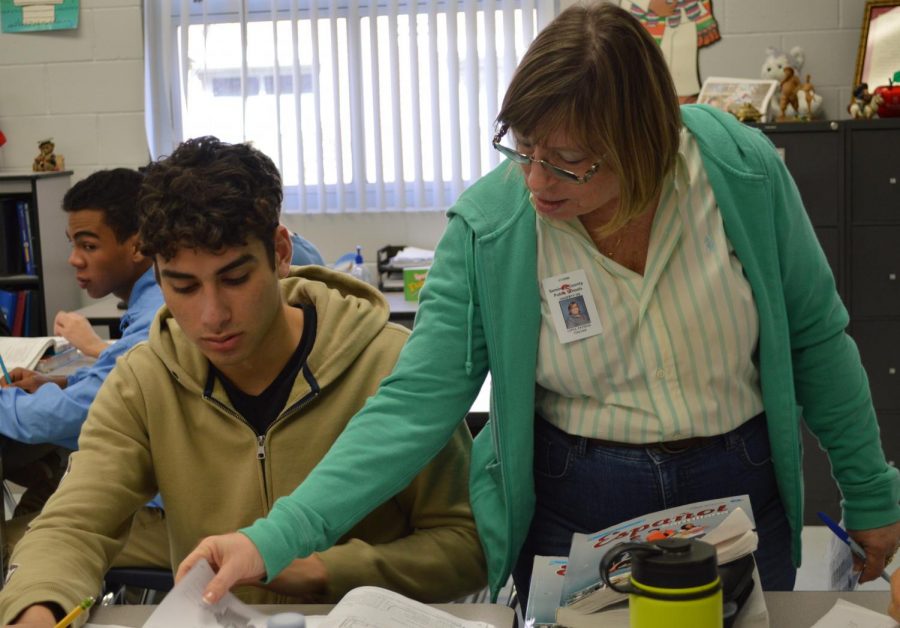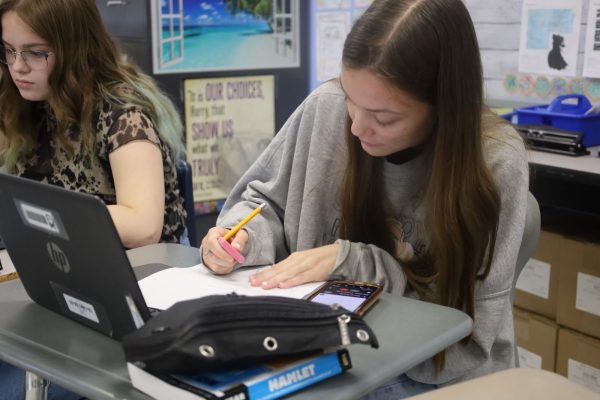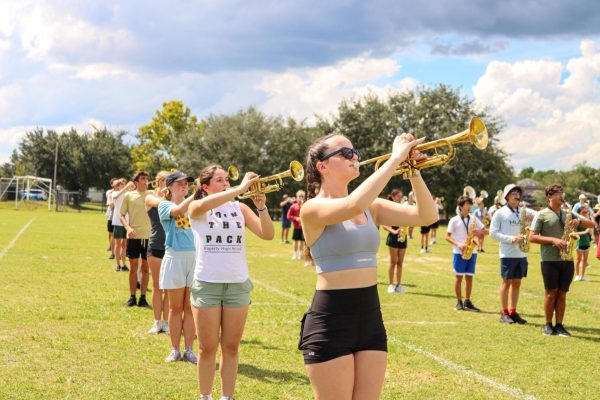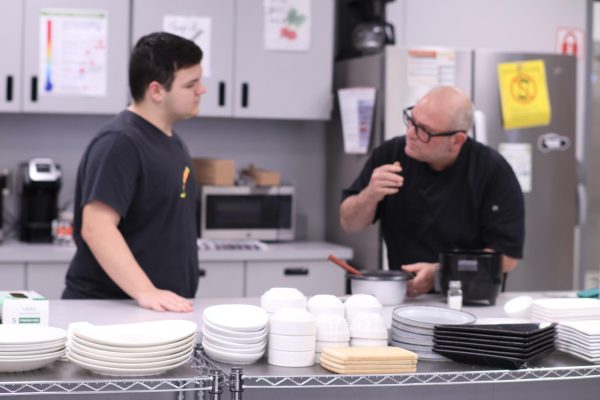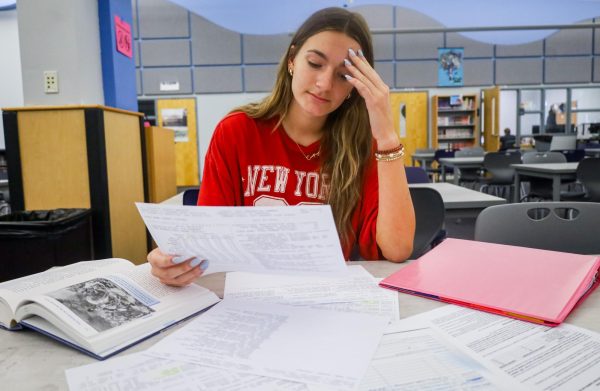Let’s talk about it
As sophomore Jacob Carlson entered French II, he prepared for another day of studying grammar and French culture. Meanwhile, across campus, sophomore Michael Self walked into Spanish III, anxious and unprepared for the day’s activities.
Regardless of whether students think of them as a terrific opportunity, or dread them and barely scrape by the class, foreign language classes are obligatory credits needed to be eligible for any of Florida’s 10 public colleges. The minimum requirement is two years of studying one language, but many students opt to take the courses for as long as their entire high school career, either to appeal more to colleges or simply out of pure interest in the subject.
“I’m always excited to come to class,” Carlson said. “I want to be fluent in French one day, so this is just like the first step.”
Despite the enthusiasm many students have for their studies, though, foreign language classes have garnered a notoriety in high schools for the level of challenge they bring to the table. PrepScholar reported that those who take AP Spanish and French exams receive average scores of 3.45 and 3.16 respectively, which is passing but still low for the grading scale, seeing as the highest possible score is a 5.
The AP curriculum’s goal is for students to be able to “understand the products, practices and perspectives of the cultures where [the language] is spoken,” according to College Board. As rigorous as they can be, they provide students with an opportunity to go beyond the standard four years of building upon conjugation, grammar and vocabulary, and benefit from a deeper immersion with the language.
“In French I, II and III, you may know how to conjugate, but that doesn’t mean you know what it means,” French teacher Pamela Lynch said. “In AP, it’s about really knowing the language.”
It seems to be unanimous between teachers that the AP level is a more immersive and useful experience. Likewise, at an attempt to lead to an easier transition, the prerequisite classes have made efforts to aid in a more intricate education with various new tools like grammar labs. These are aisles of headsets that hang from the ceiling, which students use to listen to recordings or record themselves speaking.
However, many students find that as handy as the concept may look on paper, these exercises are no walk in the park. It can be jarring for them to jump from slowly listing off vocabulary words, to suddenly having to comprehend an entire, fast-paced conversation in a language they barely know.
“As soon as we start the ‘speaking and listening’ activities, it’s like, you don’t know what to do, you can’t understand what they are saying, you don’t know how to reply,” Self said.
This seems to be a common trend, in that the county’s set curriculum fluctuates in gauging how much it thinks students can handle. What with only getting to attend class for a couple hours per week, plus breaks and holidays, it can be a challenge for students to keep every new bit of information fresh in their minds.
For Spanish teacher Patricia Lopez, she also finds these inconsistencies to be unfair at times.
“We need to be able to cover one set of curriculum in each level,” Lopez said. “We cannot include everything in the amount of time we have, so students are not as prepared or well-versed.”
Students who want a more engaging experience in their studies can turn to the various immersion programs after high school found at most colleges around the country. Studying abroad is one of the most popular forms of education today, with 100,000 more American students taking it up in the past decade, according to Northeastern University.
Teachers have found in recent years that, despite the limitations of public schooling, they are allowed many liberties in the classroom. They can use their background knowledge to teach students in the way they think is best, rather than being restricted to rules on exactly what lectures to give or what notes to assign.
“[The standards] are vague enough that it’s actually to the benefit of the teachers,” Lynch said. “I’m able to teach way more than what the county requires.”
It may take a few more years of amendments, but students and staff seem to have a clear objective of making the most of the foreign language curriculums until they reach a peak of cultural immersion and the most effective education. They know indisputably that it can only get better from here.
Your donation will support the student journalists of Hagerty High School. We are an ad-free publication, and your contribution helps us publish six issues of the BluePrint and cover our annual website hosting costs. Thank you so much!

